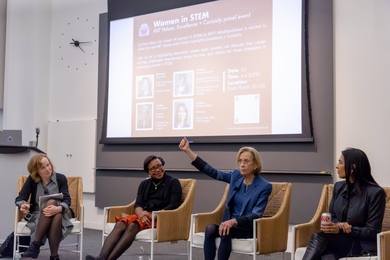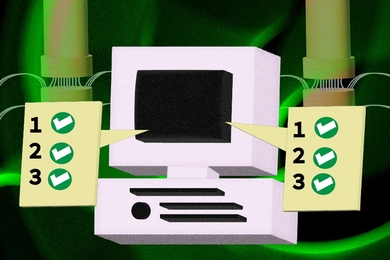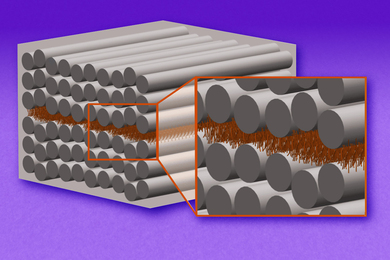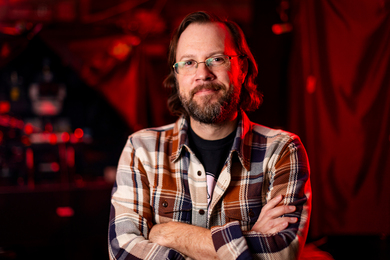The new Speaker of the House, Representative J. Dennis Hastert, Republican of Illinois, is considered a supporter of science and technology issues by fellow members of an Illinois coalition of science and technology leaders in academia, business and government, according to a report from the American Institute of Physics.
His district includes DOE's Fermi National Accelerator Laboratory, of which he has been a strong advocate. Other major technology-related employers in the 14th district include AT&T Corp./AT&T Bell Laboratories, Matsushita Electric Corp./Panasonic Industrial Co., and numerous hospitals and medical centers.
Mr. Hastert, 57, who is beginning his seventh term, is considered an honorable and pragmatic legislator, solid rather than flashy, who believes in conservative principles but is willing to work hard to find compromises.
In the past, Mr. Hastert has been active behind the scenes in the Republican leadership. He has served for the past four years as chief deputy whip, the second-in-command to Majority Whip Tom DeLay (R-TX). In this role, Hastert earned a reputation for convincing members to vote the party line, but with subtlety and persuasion rather than arm-twisting. Although he worked side-by-side with the more partisan DeLay, Mr. Hastert's amiable style is thought to be reminiscent of his old mentor, former Minority Leader Robert Michel (R-IL).
An Illinois native, Mr. Hastert lives in Yorkville in a suburban and rural congressional district outside of Chicago. The institutions of higher learning in his district are Aurora University, Elgin Community College, Judson College, Kishwaukee College, Northern Illinois University, Sauk Valley Community College and Waubonsee Community College.
He is a graduate of Wheaton College in Illinois and has an MS from Northern Illnois University. For 16 years, Mr. Hastert taught high school history and government, and was a wrestling and football coach.
As he has never been much in the public eye, there is little indication of the strength of his support for science-related programs. He has been a proponent of Illinois's Fermilab (he was active in pushing for funding upgrades to Fermilab's Tevatron) and Argonne National Laboratory.
As a member of the Illinois General Assembly from 1981-86, he supported the effort to create the Illinois Math and Science Academy to improve education in those fields.
In 1995, Mr. Hastert opposed an amendment to cut NSF and NASA appropriations, and in 1996 he signed a letter to appropriators recommending that NSF be fully funded during a time when government shutdowns had left the appropriations process in disarray. He did not sign a 1996 letter to the administration calling for a strong budget for DOE fusion funding.
In up-or-down votes on the international space station in 1993 and 1994, Mr. Hastert voted to terminate the project. He has parted somewhat from the conservative line by endorsing funding for energy efficiency programs.
As he looks toward the first session of the 106th Congress, Mr. Hastert has called Social Security reform "the number one priority" for Congress. In his January 6 acceptance speech, he emphasized "four big challenges": Social Security and Medicare reform; economic security through tax relief and leaner, more efficient government; stronger national defense; and improved K-12 education.
According to voting records and interest group ratings compiled by Congressional Quarterly, Mr. Hastert has voted the Republican Party line 95 percent of the time in each of the last three years. Over the same period, his voting record has coincided with the Conservative Coalition position 98 percent of the time.
Last year he supported President Clinton's position in 21 percent of votes. He has received a 100 percent rating in each of the last three years from the US Chamber of Commerce for his pro-business, antiregulatory votes.
The American Conservative Union gave him a score of 88 percent last year, and has scored him at 100 percent in some preceding years. He has earned a zero rating from the AFL-CIO for all four of the past years, and a zero in three of those years from the Americans for Democratic Action.
A version of this article appeared in MIT Tech Talk on January 13, 1999.





